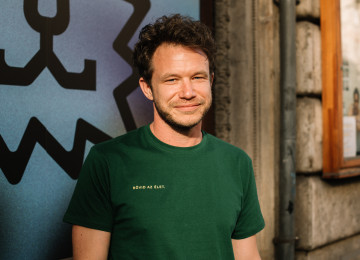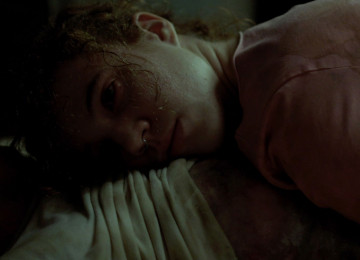0. Make a good film.
“My way is to begin with the beginning,” Byron is quoted by the wonderful Antal Szerb in The Pendragon Legend, and I won’t argue with him either. So, first of all: make a good film. Ideally. Make it professional, but bold. Know the conventions — but don’t be afraid to break them. The best short film is quick, precise, surprising. Oh, and maybe most importantly: don’t make it too long! A short film is not just a shorter feature film; it has its own narrative rhythm — you wouldn’t tell a joke in the form of an opera aria, would you?
1. Think about what you want from your film.
A big audience? Professional recognition? A chance to make another film? All valid goals, and they don’t exclude one another. But it’s worth clarifying this for yourself early on — it will help you plan your film’s afterlife.
Be ambitious, but realistic. Waiting months or even a year for a response from an A-list festival might not be worth it — especially if your film’s genre could open doors to dozens of thematic or genre-specific festivals. From here, you’re only a step away from building your festival strategy.
Sounds intimidating, but don’t overthink it: just make a spreadsheet. Where do you want to submit? What are the deadlines? Is a premiere required? What’s the entry fee? The earlier you submit, the cheaper it is — keep that in mind. Somewhat related: watch films — know the field and find inspiration!
2. Organize a team.
Just like you didn’t make the film alone, you don’t have to manage its afterlife alone either. Involve your producer or other crew members who care about seeing the results of their work. Planning a festival run is a huge task, but breaking it down makes it much easier. And yes, if you can, bring in professionals — but in the world of short films, that’s rarely an option. That’s why teamwork matters.
3. Get organized and polish your platforms.
It may sound cliché or boring, but it needs to be repeated: your film’s online presence should be organized. Have a dedicated site or at least social media profiles — and as a creator, keep your portfolio updated and professional. Make sure your FilmFreeway and Shortfilmdepot pages are current:
- High-quality, eye-captivating stills
- Short, punchy synopsis
- Accurate technical info
These things matter when a programmer is browsing through submissions.
4. Reach out to festivals that matter to you.
Don’t send mass emails. Forget copy-pasting. Write short, personal, well-targeted messages to the people you want to reach. You should know who the recipient is, what the festival does, what it’s looking for — and then explain why your film could be a good fit. And of course: be concise and clear (just like your film should be). A few thoughtful, human sentences go a long way.
5. Be patient.
You’ll get rejections. Many of them. That’s completely normal. Everyone hits a wall or two. Eisenstein, Hitchcock, Fellini — even Sean Baker has been there. Your film won’t be selected for many festivals. Here at Friss Hús, we also reject plenty of films we actually like — but they just don’t fit that year’s lineup. It’s not failure. It’s part of the process. Keep going — success will come.
6. Ask for feedback.
From viewers, film colleagues, professionals you meet at festivals — anyone whose opinion you value. You can even try asking festivals, though they often don’t have the capacity to give personal feedback. And learning to filter feedback is a skill in itself — three people will give you four opinions. Listen to everyone, but don’t feel like you have to act on every suggestion.
7. Celebrate success.
Just finishing a film is a huge achievement. Every screening, every recognition, every bit of positive feedback is something to be proud of. And you need those moments — they’ll give you the energy to start again. Because making films is one of the best things in the world.
+1. Submit your film to Friss Hús.
If you’ve made it this far (in reading, and hopefully with your film too), don’t wait — submit it to Friss Hús! You can find us on FilmFreeway and Shortfilmdepot — pick the platform that works best for you. If you’re unsure, feel free to reach out with questions.
A good film will find its way. But you can help it get started.




